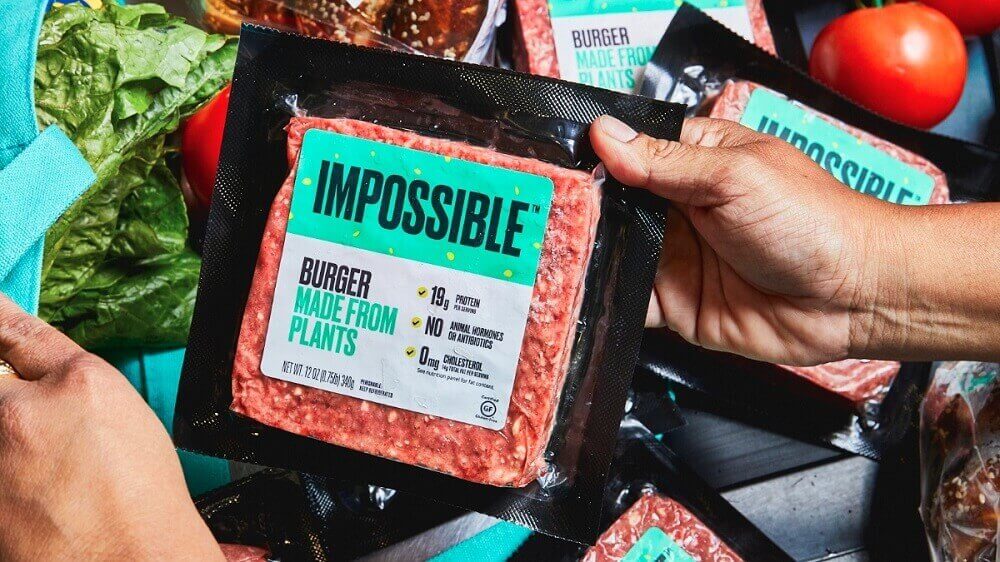Vegan meat brand Impossible Foods closed a $500 million funding round. Since its founding in 2011, the Oakland, California-based brand has raised $1.3 billion. The additional funding will be used to scale up and support new product development.
“With this latest round of fundraising, Impossible Foods has the resources to accelerate growth—and continue to thrive in a volatile macroeconomic environment, including the current COVID-19 pandemic,” David Lee, chief financial officer, told Food Business News.
The food-tech brand has taken measures to mitigate the COVID-19, also known as the coronavirus, outbreak, including a mandatory work-from-home policy for those who can telecommute. Workplaces are sanitized daily and there is a ban on all work-related travel.
The latest round of funding was led by Mirae Asset Global Investments with participation from Khosla Ventures, Horizon Ventures, and Temasek. Singapore-based Temasek is also an investor in Perfect Day, an Emeryville, California-based food-tech startup that makes plant-based dairy proteins.

Making the ‘Impossible’ Possible
Impossible Foods’ signature product is the Impossible Burger; a gluten-free, plant-based meat made from soy and potato protein. It’s currently in its “2.0” update—prior to this, Impossible meat was made from wheat and potato protein. Heme, an iron-rich, soy-derived compound that’s also found in meat. It’s responsible for a uniquely meaty flavor.
Backed by funding from the likes of tech billionaire and philanthropist Bill Gates, Jay-Z, and Ruby Rose, Impossible Foods move into mainstream territory has been quick. It made its restaurant debut at David Chang’s New York City-based eatery Momofuku Nishi in July 2016. It slowly spread throughout higher-end Manhattan establishments, such as Saxon + Parole and the Michelin-starred Public. Soon, the Impossible Burger made its way to smaller, fast-casual chains like Bareburger, Umami Burger, and Wahlburgers.
Then, in April 2018, White Castle, America’s first fast-food chain, trialed the Impossible Slider at 140 restaurants. By September that year, White Castle—which already had a vegan-friendly patty on the menu—was ready to take the realistically meaty burger nationwide.
Fast-food giant Burger King took an interest, too. In April 2019, it trialed the Impossible Whopper at select St. Louis locations. It launched nationwide in more than 7,000 restaurants last August following a trial that went “exceedingly well,” according to parent company Restaurant Brands International. Burger King tested an Impossible Croissan’wich sandwich at select locations last January.
In October, the brand reached a new milestone: Impossible meat made its retail debut, in Gelson’s and Wegmans stores.
Impossible Foods has more than quadrupled its production to keep up with demand.
Looking to the future, the brand is in the process of gaining approval to enter the European market. It is, along with competitor Beyond Meat, also eyeing the Chinese market. Future products may include Impossible pork, chicken, and dairy products.


